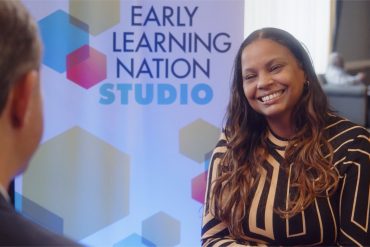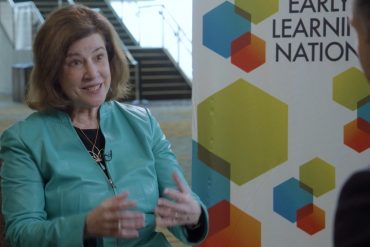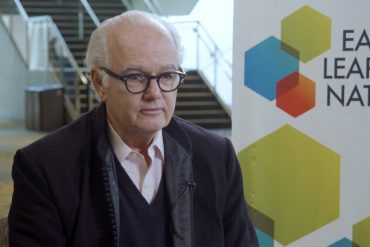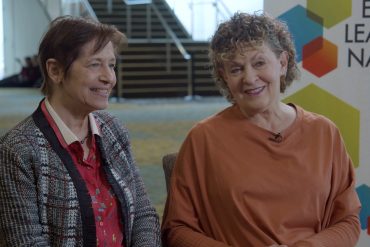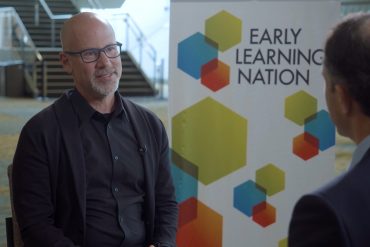NBCDI President Dr. Leah Austin discusses how the 52-year-old national organization that focuses on the healthy child development of Black children takes its mission and message to all U.S. communities, working with key local leaders, educators and parents to improve education, as well as offering key lessons from the NBCDI’s Early Years Climate Action Task Force.
From “helicoptering” to “snowplowing,” parents are often tempted to simply remove obstacles from children’s way, preventing them from learning how to deal with challenges themselves. Instead, as Ellen Galinsky, Bezos Family Foundation Chief Science Officer and Founder/Executive Director of Mind in the Making, explains, the better approach is to build “Autonomy Support” – helping children gain the independence skills they’ll need to become successful adults. Filmed for Early Learning Nation’s Mobile Studio at the Society for Research in Child Development’s biennial meeting in Baltimore, MD, on March 22, 2019. #SRCD19
According to NYU University Professor Lawrence Aber, poverty and violence are the two most toxic challenges for child development – areas he has researched from the U.S. to Africa and the Middle East. Regardless of location, children can experience poverty and violence in difference ways and levels. Aber explains the research, tools and tactics required to give children the best opportunities for successful development. Filmed for Early Learning Nation’s Mobile Studio at the Society for Research in Child Development’s biennial meeting in Baltimore, MD, on March 22, 2019. #SRCD19
The pressure to over-program kids often seems endless – so much so that a simple, old-fashioned idea has fallen to the side: Children should play. Roberta Michnick Golinkoff & Kathy Hirsh-Pasek – researchers and co-authors of “Becoming Brilliant, What Science Tells Us About Raising Successful Children” – explain their “Learning Landscapes” program, where they help local municipalities turn public spaces like bus stops into child-friendly play zones.
When University of Maryland Associate Professor Geetha Ramani and her colleagues visit early learning classrooms, they’re known as the “game people.” Ramani’s research shows not only the importance of teaching math skills, but also the effectiveness of what might seem like an obvious tactic: Make it fun.


